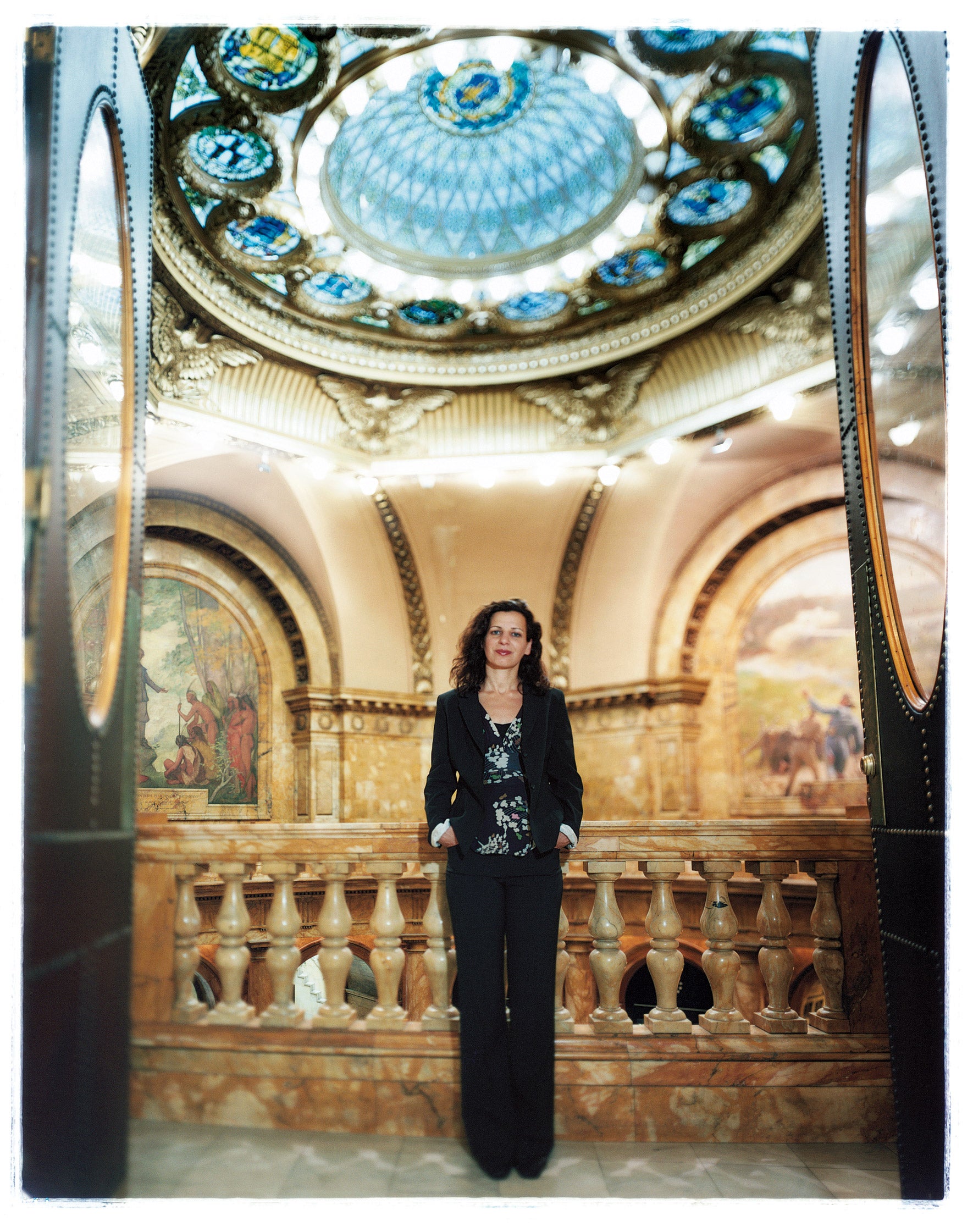The only “first” that matters to Juliette Kayyem ’95 is our first line of defense
Perched on the 21st floor of an office building next to the Statehouse on Boston’s Beacon Hill, Juliette Kayyem ’95 has a spectacular view of the city’s waterfront. But when you’re the person in charge of Massachusetts’ homeland security, that view prompts vigilance more than anything else. Recently she was on the lookout for a liquefied natural gas tanker due to arrive in Boston Harbor (the tanker has been identified as a potential terrorist target). And she was beginning to memorize the schedule of low-flying planes coming into Logan. Appointed by Gov. Deval Patrick ’82 in January, Kayyem is the state’s first undersecretary of homeland security. In charge of re-evaluating and overseeing the state’s emergency-preparedness system and budget, she is also the governor’s adviser and liaison with the federal government when security issues arise.
Kayyem brings a unique perspective to her job; of Lebanese descent, she’s the only Arab-American in charge of homeland security at the state level. For much of her life she’d thought of her heritage as part of her personal identity, not her professional one. “When they merged,” she said, “it was a little bit weird.” But at the same time, she hopes that her presence in a high-profile role might encourage other Arab-Americans to join the national-security world. “I’m recognizing that [my identity] is relevant for people in those communities who might want to go into national security but who have viewed some of the tactics as harsh or onerous or alienating,” she said.
This is not the first time Kayyem’s background has been relevant to her professional life, nor is it the first time she has worked for Patrick. She was a litigator at the U.S. Justice Department when he was assistant attorney general for civil rights during the Clinton administration. But what came to define her time there was her passionate fight against the use of secret evidence to detain about a dozen people—most of whom were Arab men. Kayyem came to believe that within the FBI and the Immigration and Naturalization Service, there was a bias against Arabs and Muslims which the Justice Department had a responsibility to address. She eventually became an adviser to Attorney General Janet Reno ’63, and in that role she pushed Reno to re-examine the detention policies. She was also the only Arab-American member of the National Commission on Terrorism, formed after the bombings of the U.S. Embassies in Kenya and Tanzania (her appointment caused some dismay among Muslim-American leaders, who pointed out that Kayyem is Christian, not Muslim).
But then came Sept. 11 and a radical shift in the climate of law enforcement. Now, Kayyem admits, being worried about the detention of a handful of Arabs seems like “the good old days.” By the time of the attacks, Kayyem had left Washington for Cambridge, where she worked for several years at Harvard’s Kennedy School of Government as a terrorism expert lecturer and for NBC News as a national security analyst. She still lives there, with her husband, David Barron ’94, a professor at HLS, and their three children. During her tenure at the Kennedy School, she wrote “Protecting Liberty in an Age of Terror” (2005) with HLS Professor Philip Heymann ’60, a former deputy U.S. attorney general in the Clinton administration. They examined the territory where civil liberties and national security intersect, and delved into some questions most would rather avoid—Is assassination ever acceptable? What kind of coercion can you use in interrogations? Even more pertinent to her new job is a book she co-edited, “First to Arrive: State and Local Responses to Terrorism” (2003), a series of essays by those who would be the first responders to a domestic attack.
While for Kayyem, terrorism prevention has always been paired with the protection of civil liberties, today she faces a sea of other issues. “After having been on the outside,” she said, “you come in and recognize the competing concerns about different policy issues and how to weigh them.” The liquefied natural gas tanker she’d been scanning the harbor for is a case in point. “LNG could be the oil of our children’s future, [but] it’s got security implications; it’s got environmental implications, energy implications,” she said. “They all coexist.”
